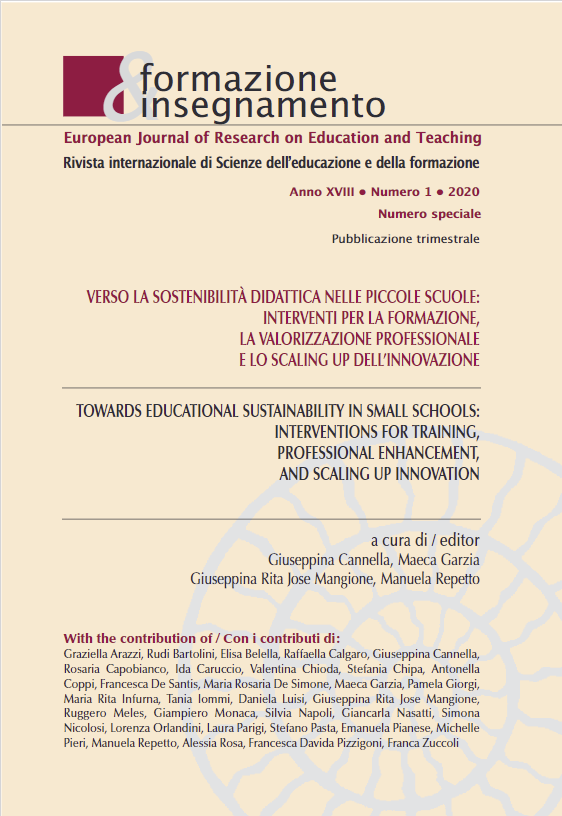Educational projects in inner areas, evaluation and situated learning. A methodological reflection
DOI:
https://doi.org/10.7346/-feis-XVIII-01-20_12Abstract
Students learning surveys (such as Invalsi and OECD-PISA) show the importance of learning together with “non-observable” factors (such as social and cultural contexts) in influencing children’s knowledge and skills. From the primary cycle, Invalsi tests’ variability is significantly dependable on schools. To the same extent, the likelihood of becoming “resilient” students is not so much affected by individual characteristics, but rather by school factors. Alongside the experimentation of innovative educational actions with a territorial approach - as those tested by the National Strategy for Inner Areas - it is essential to conduct qualitative analyses in order to evaluate results and integrate the “quantitative dimension” of learning. The action-research activity, as an educational action and as a method of observation-analysis, can have relevant implications for education policies.
Downloads
Published
How to Cite
Issue
Section
License
Copyright (c) 2020 Pensa MultiMedia

This work is licensed under a Creative Commons Attribution 4.0 International License.
Formazione & insegnamento is distributed under Attribution 4.0 International (CC BY 4.0).
For further details, please refer to our Repository & Archiving Policy, as well as our Copyright & Licensing Terms.





